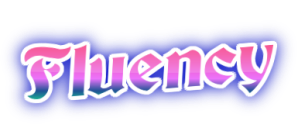I haven’t told many people yet that I’m traveling again for the first time in over two years, and I have so many blogs that it’s safe to say my main audience won’t find this one. What most people would call an impulse trip, I’d just call a part of my life at this point.
I’m finally getting on language number three and going to Mexico for a month to learn Spanish. My language learning style is pretty engaged and intentional and it’s always nice to have someplace to put thoughts. I live pretty publicly and openly, so having a blog is somehow always more satisfying for me than keeping everything locked up in a book or private document.
Anyway, every one of my blogs has a different function. What I love about Mr. Schliemann is that it’s so straightforwardly linguistic. In my years traveling, learning about people, becoming intellectually accessible, getting off my high horse and rewiring my communication primarily for children (teaching English to adolescent non-native speakers will really make you question the necessity of verbosity), I’ve kind of lost my academic edge. Which is a good thing, in my opinion, because it’s made me realer. But everything needs an outlet and this blog is my outlet for obnoxious, pretentious linguistic word salad.
Here are my intentions for the trip.
LEARN SPANISH
Spanish was the first language I started learning, followed up with immediate departures to Russian and then Tamil. The obvious goal number one of this trip is to return to this interest and get as fluent as possible in a month. I’m going to do this by attending classes, booking twice-a-week tutoring sessions, and immersing in the local culture. I have a month booked at a hostel, which will provide more chances for immersion than staying at a hotel.
STUDY MAYAN

The beginning of my linguist journey was a book called Breaking the Maya Code by Micheal D. Coe. Though I didn’t finish it (I was only 16), it was an awakening for me. Mayan hieroglyphs combined my artistic tilt with my fascination with language. So it’s kind of magical that 15 years later I’m heading to the place where the glyphs are.
I’m also interested in spoken Mayan, which is still the local “grandparents language” there. Just like I learned basic Hokkien from old people in Taiwan, I hope to absorb some Mayan through local exposure.
LEARN TO WRITE AND READ
While speaking is a basic, universal, and integral part of our species, writing is technology. So I’ll incorporate daily literacy practices into my routine—journaling, reflective class notes transcription, active reading exercises, light reading. I’ll work in writing longhand as well as typing with a Spanish keyboard.
REMOVE HOMEPROPS
One trap I consistently fall into is homepropping, a word which I made up. Convincing myself that I need a break from immersion, I’ll watch an English show on Netflix, listen to American music, or scroll English Instagram and TikTok. Other homeprops are resorting to American food and spending most of my time with Anglophone expats.
While a now-and-then treat to cure homesickness can be a welcome respite, I believe consistent homepropping stifles language/culture growth and, in the long term, makes the transition even harder. The instant availability of media from home makes full immersion more difficult than it used to be. One of my favorite quotes about travel and language comes from Julia Child.
In fact, I didn’t like traveling first class at all. Yes, it was nice to have a bathroom in a hotel and fine service at breakfast… but none of it seemed foreign enough for me. It was all so pleasantly bland that I felt as if I were back on the SS America. I don’t like it when everyone speaks perfect English; I’d much rather struggle with my phrasebook.
Julia Child, My Life in France
Whether it’s turning off my social media for #switchoffsummer, or changing my phone UI language to Spanish, I crave full immersion in the moment. Life has always seemed a little illusory for me; chasing the feeling of reality has been a constant journey. Removing homeprops is a step in that direction. If nothing else, it’s just full commitment to the bit.
REACH A FULLER INDEPENDENCE
I spent most of my life feeling lonely, but in the past six years I’ve made profoundly deep friendships. Many of these are in the world of seasonal work, which is dominated mainly by hippie-dippy young people disillusioned with our consumerist wage slavery culture. We don’t have houses, many of us don’t have cars or even licenses, and we prioritize friendships over career. We prefer a bohemian lifestyle of sharing food and spending our free time in nature.

While the four years abroad was really good for me, I was largely unhappy. Conversely, I developed a lot in the two years I spent stateside among the bohemian crowd. The immaterial things I was chasing, I ended up finding in my own backyard. (Alaska, not Maine, but still the USA.)
Feeling more satisfied now than I had during my four years abroad, my incessant and almost panicky drive to constantly move to a new country has gone away. Now that those immaterial dreams have been fulfilled, I wonder what my experience abroad will be like now that I’m not chasing anything? Keep reading this blog to find out how it goes.






